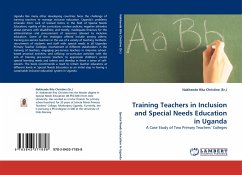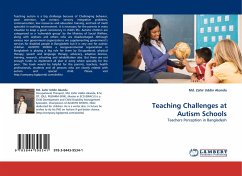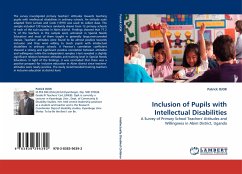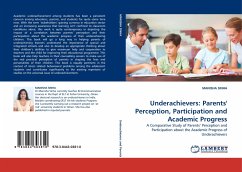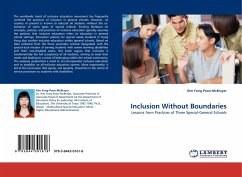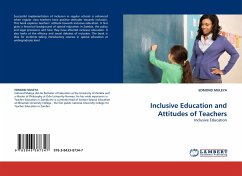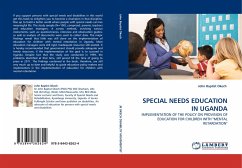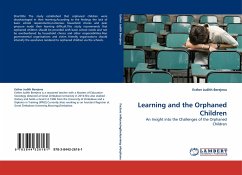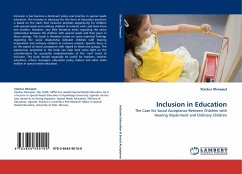
Inclusion in Education
The Case for Social Acceptance Between Children with Hearing Impairment and Ordinary Children
Versandkostenfrei!
Versandfertig in 6-10 Tagen
39,99 €
inkl. MwSt.

PAYBACK Punkte
20 °P sammeln!
Inclusion is has become a dominant policy and practice in special needs education. The increase in advocacy for this form of education provision is based on the claim that inclusion provides opportunity for children with special needs and ordinary children to interact with, and learn from one another. However, very little literature exists regarding the social relationship between the children with special needs and their peers in these settings. This book is therefore based on some empirical findings regarding the social relationship between children with hearing impairment and ordinary child...
Inclusion is has become a dominant policy and practice in special needs education. The increase in advocacy for this form of education provision is based on the claim that inclusion provides opportunity for children with special needs and ordinary children to interact with, and learn from one another. However, very little literature exists regarding the social relationship between the children with special needs and their peers in these settings. This book is therefore based on some empirical findings regarding the social relationship between children with hearing impairment and ordinary children in inclusive schools. Specific focus is on the aspect of social acceptance with regard to these two groups. The experiences presented in the book can help shed some light on the considerations for successful implementation of this 'new' trend of inclusion. The book should especially be useful for teachers, teacher educators, school managers, education policy makers and other stake holders in special needs education.




